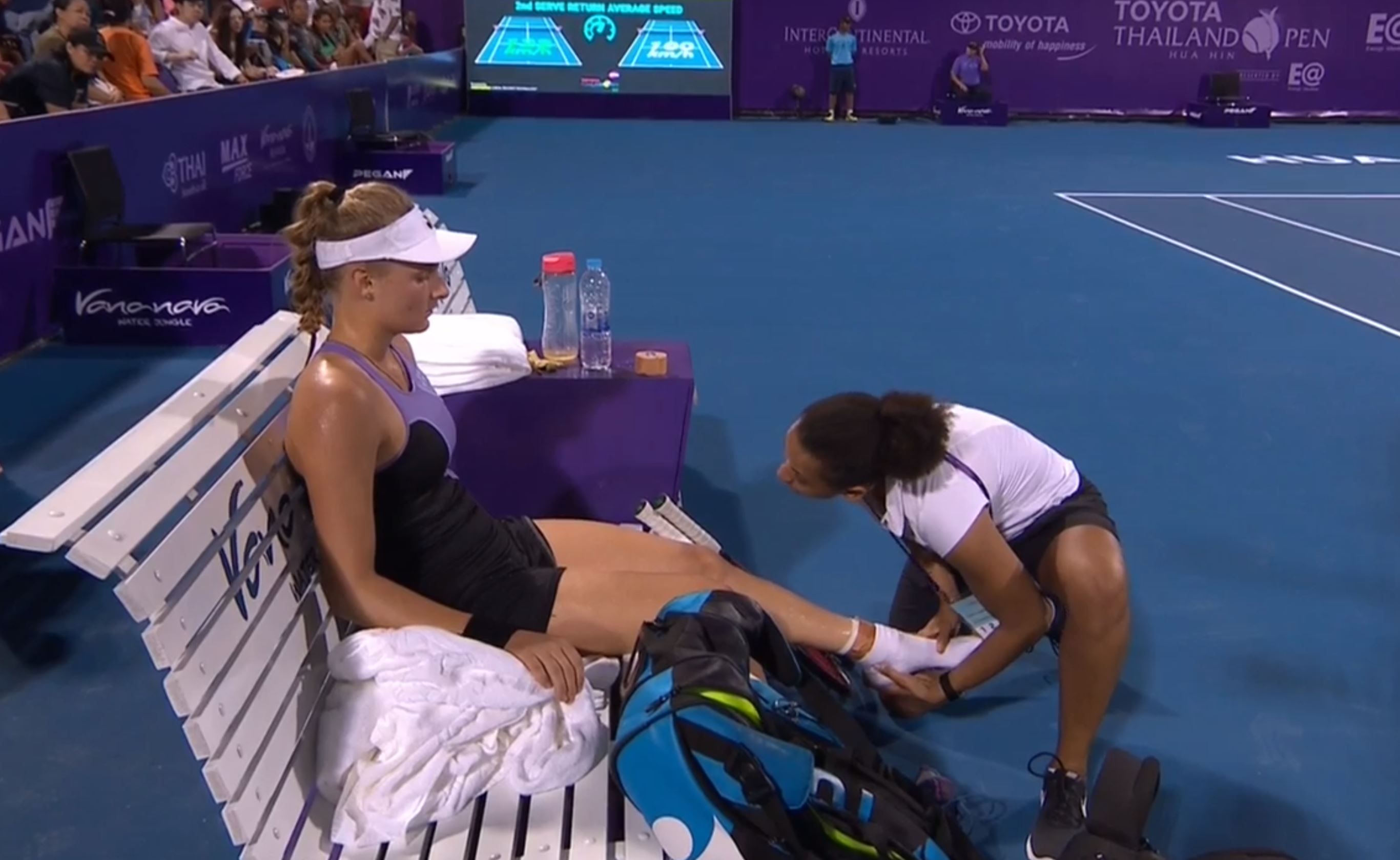Dayana Yastremska defeated Ajla Tomljanovic 6-2, 2-6, 7-6(3) in a dramatic final at the Toyota Thailand Open in Hua Hin on Sunday, and when it was over Nick Kyrgios took to Twitter to call out the Ukrainian champion for calling for a medical timeout while trailing 5-2 in the deciding set.
“That medical was trash,” wrote Kyrgios.
During the match the MTO drew the ire of Tomljanovic, who protested during the changeover to chair umpire Jenny Zhang but was told that there was nothing that could be done about the situation.
Later in the day Rennae Stubbs, former WTA star and current coach of Karolina Pliskova, replied to Kyrgios on Twitter, calling Yastremska’s medical timeout “Bush league.”
Yastremska had her left knee looked at and worked on before returning to the court after a five-minute delay as Tomljanovic served for the title with a 5-2 lead in set three. The Ukrainian would take the next four games, seeing the trainer and having the same knee treated during each of the next two changeovers.

Players are limited to one three-minute medical timeout for non-acute, treatable injuries, and it is expected that they ask for the trainer only if there is an injury. But there's a whole lot of grey area in there as who can really say if a player is injured or not?
Untimely MTOs are a common phenomenon in tennis, and they are seen by many as an attempt by one player to game the system.
It is also generally frowned upon when players take medical timeouts before their opponents are about to serve, but in this case changeovers were only occurring prior to Tomljanovic’s serve, so Yastremska would have had to stop the match on an even game to do it on her serve.
One looking at it from Yastremska’s side of the coin could say that she was carrying a knee injury and needed the medical attention to clear up a blockage in that area. Who are we to say that she wasn’t feeling pain in the knee? Technically she did nothing against the rules—unless she was faking the injury to buy time and take Tomljanovic out of her groove.

It isn’t the first time Yastremska has received some negative attention for her disregard of tennis’ unwritten code of ethics. She has twice retired with her opponent one game from victory over the last 15 months. Again, in such situations, it’s hard to know what the player is feeling. That’s what the rules are put in place for—the safety of the players is paramount, and sometimes controversy follows as a result.